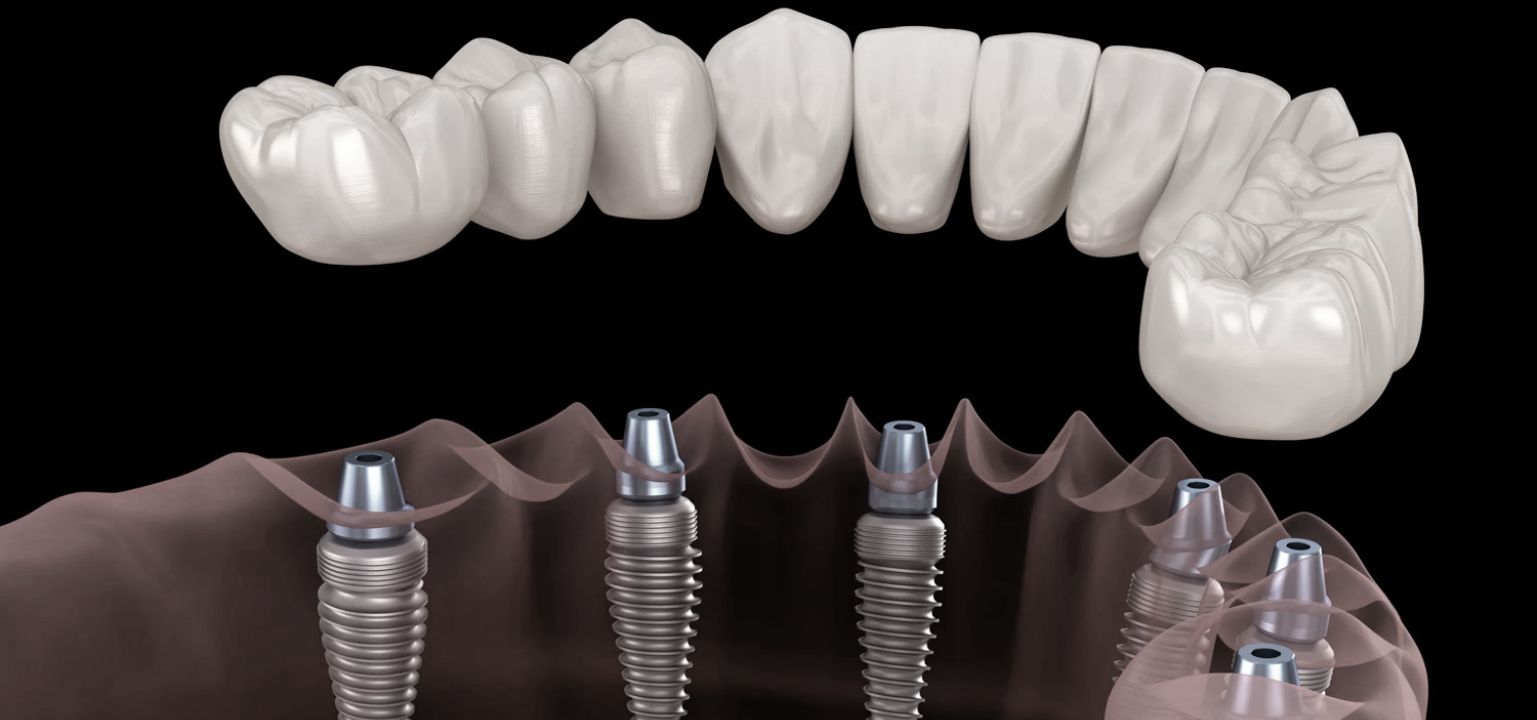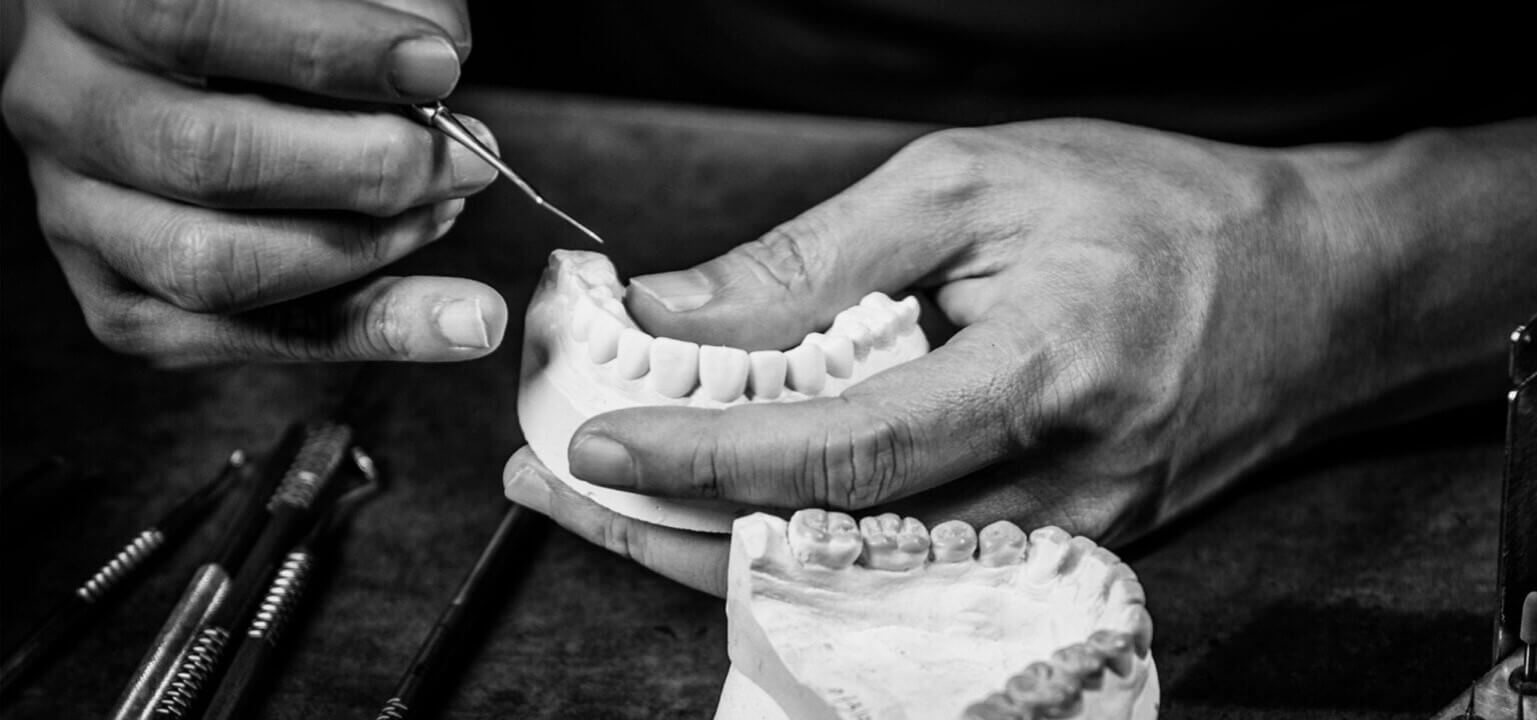

Having healthy and white teeth plays a significant role in our self-esteem, confidence, and overall psychological well-being. When oral health issues affect our teeth, it can lead to a range of emotional and social challenges. This is where Full Mouth Rehabilitation (FMR) steps in, offering a transformative solution that goes beyond just fixing the facade; it goes deeper, offering multiple solutions.
What is Full Mouth Rehabilitation (FMR)?
FMR is a comprehensive dental treatment plan that addresses a wide range of oral health problems to restore both the function and aesthetics of your mouth. It can involve a combination of procedures, including:
- Dental implants: Replacing missing teeth with artificial roots and teeth.
- Crowns and bridges: Restoring damaged or decayed teeth.
- Orthodontics: Correcting misaligned teeth and bite issues.
- Gum disease treatment: Addressing periodontal problems.
- TMJ therapy: Treating temporomandibular joint disorders.
FMR is customized to each patient's unique needs, creating a personalized plan to achieve optimal oral health.
How Do Oral Health Issues Impact Our Psychology?
Before we delve into the psychological benefits of FMR, it's important to understand how oral health problems can affect our mental well-being:
- Low self-esteem: Missing, chipped, or discolored teeth can make people feel self-conscious about their appearance, leading to low self-esteem and social anxiety.
- Difficulty eating: Problems with chewing due to missing teeth or jaw pain can restrict food choices, affecting nutrition and enjoyment of meals.
- Speech impairments: Misaligned teeth or ill-fitting dentures can impact speech clarity, leading to communication difficulties and embarrassment.
- Chronic pain: Conditions like TMJ disorders can cause chronic pain, leading to stress, irritability, and even depression.
Psychological Benefits of FMR
FMR can have a profound impact on your psychological well-being, offering multiple benefits:
- Boost in confidence: A restored smile can significantly improve self-esteem and confidence, allowing you to smile freely and engage in social situations without hesitation.
- Reduced anxiety: Addressing oral health issues can reduce stress related to appearance, eating, and speaking.
- Improved social interactions: A confident smile can enhance social interactions, making it easier to connect with others and build relationships.
- Increased self-image: FMR can improve your perception of yourself, leading to a more positive self-image and overall sense of well-being.
- Better quality of life: By restoring oral function and aesthetics, FMR can improve your quality of life, allowing you to enjoy activities like eating and speaking without limitations.
- Reduced stress: Addressing chronic oral pain can reduce stress levels and improve your overall mood.
Beyond the Price Tag
While FMR requires a significant financial investment, it's important to consider the long-term benefits it offers. FMR is not just about fixing teeth, but about restoring confidence, improving quality of life, and enhancing overall well-being.
Cost Structure in INR
The cost of FMR varies depending on the complexity of the case, the number of procedures involved, the materials used, and the location of the clinic. Here's a general cost structure:
- Dental Implants: ₹30,000 - ₹80,000 per implant
- Crowns: ₹8,000 - ₹25,000 per crown
- Bridges: ₹15,000 - ₹50,000
- Dentures: ₹10,000 - ₹50,000
- Orthodontics: ₹30,000 - ₹1,50,000
Conclusion
Full mouth rehabilitation is an investment in your oral health and overall well-being. By addressing a range of dental issues, FMR can transform your smile and have a profound positive impact on your psychological health. Don't let the price tag hold you back from seeking a treatment that can significantly improve your quality of life.
All Blog
- Does a More Expensive Clinic Guarantee Better Dental Implant Results?
- The Psychological Benefits of Full Mouth Rehabilitation: Beyond the Price Tag
- How do I choose the best restoration option for me?
- Top 10 Tips for a Smooth Recovery After Wisdom Tooth Removal Surgery
- Clear Aligners vs. Metal Braces: Which One is Right for Your Smile?
- Understanding Pain After Root Canal: What You Should Know and When to Get Help
- The Cost of Digital Smile Design: Is It Worth the Investment?



